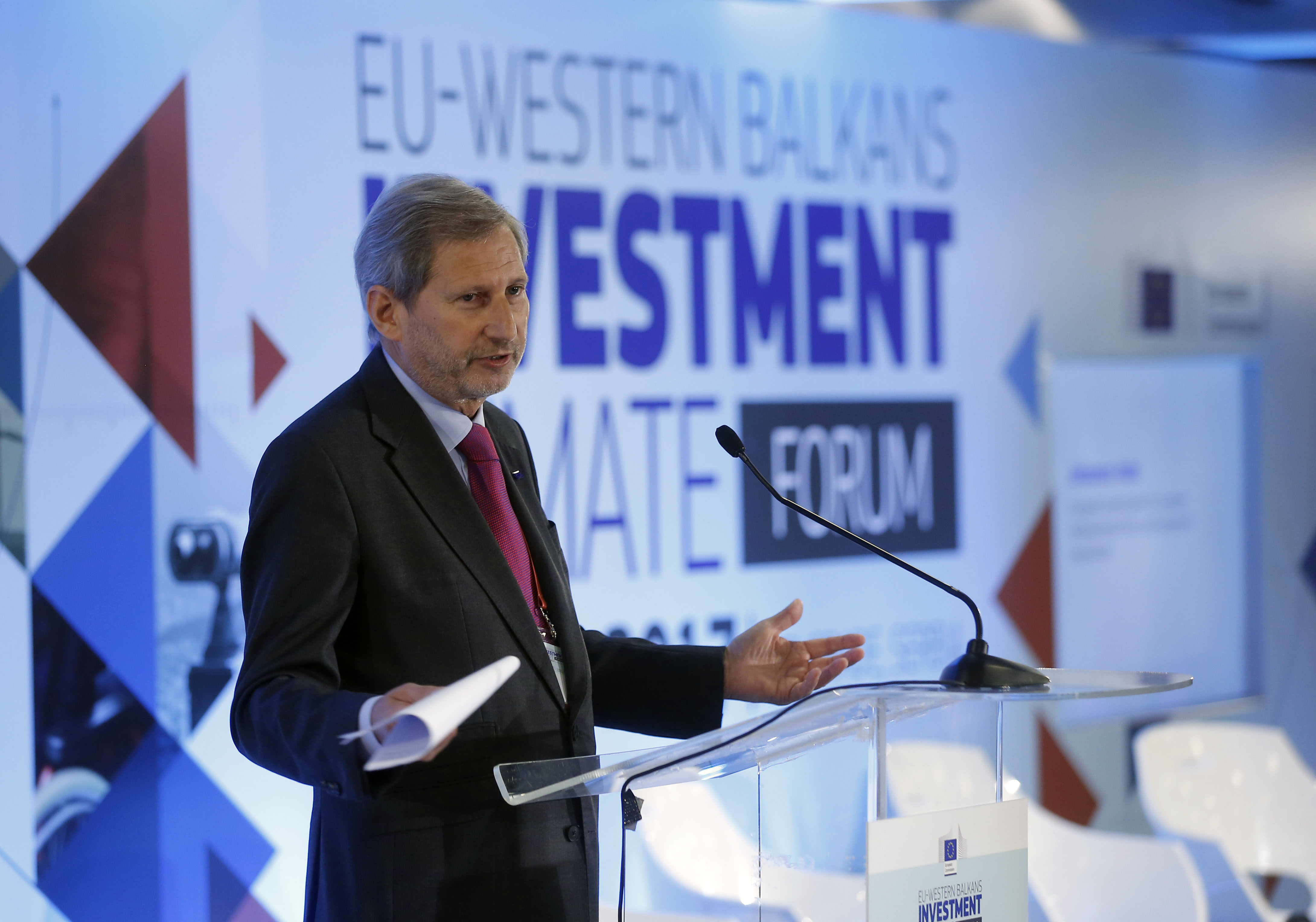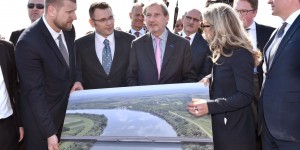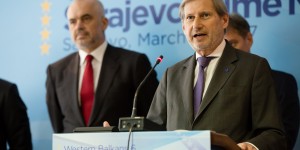Belgrade, 8 June 2017
Check against delivery!
Excellences, distinguished colleagues, ladies and gentlemen,
It gives me great pleasure to welcome you today in Belgrade at the EU-Western Balkans Investment Climate Forum.
Today’s forum brings together the public and private sector, local businesses and Foreign Direct Investmentors, academia and civil society, as well as representatives from Europe and the region. And we all share a common goal: to galvanise the Western Balkans’ growth by exploring investment opportunities in the region.
This forum is very timely: we are just one month away from the 4th annual Western Balkans Summit in Trieste, in which we will promote further regional economic integration. And just two weeks ago, both EU and enlargement country finance Ministers agreed on a number of concrete economic policy recommendations.
Our focus on the Western Balkans sends a clear political message: the EU is committed to the enlargement process and we are working very closely on key areas for growth. The desire to be part of the European family is a shared one. And we walk that path together.
We have organised today’s Forum on the Investment Climate in the Western Balkans because all countries of the region need greater investment to become prosperous EU Member States.
As a former business man, I am convinced that this is the best way to stimulate an economy and galvanise growth.
Ladies and gentlemen, the prospect of EU membership continues to drive transformation and has already brought a number of benefits to the region, particularly with regard to trade and investment.
Over the past ten years, trade between the Western Balkans and the EU has more than doubled, reaching 44 billion Euros in 2016 (exports from the Balkans have more than doubled from 7 billion Euros to 18).
Investors know that trade between the EU and the Western Balkans is already very liberalised, and that the progressive harmonisation of rules and standards will create a level playing field for all investors.
Foreign Direct Investment from the EU currently constitutes roughly 50% of the total stock in 2015 and it is growing. For Serbia, that number is over 60%.
More and more European companies are including the Western Balkans in their value chains; this is the kind of business integration that helped create wealth and jobs when the countries of central and eastern Europe were about to join the EU, most notably in Poland and Slovakia.
One important investment we are pursuing involves physically connecting the region with the rest of Europe, what we call our ‘Connectivity Agenda’. We have allocated 1.3 billion euro worth of grants and aim to leverage up to 13.5 billion euro of investments from the public and private sector in key energy, environment and transport investments by 2020.
Of course, public investment is only one component of total investment; what really matters is private investment.
And private investment is still lagging far behind in the Western Balkans; especially cross border investment is 4 times lower than in the EU.
Ladies and gentlemen,
Building bridges and connecting territories will make a profound contribution to developing good neighbourly relations and further promoting peace and reconciliation, in addition to bringing economic benefits.
The rule of law and economic development are two sides of the same coin. It is thanks to the democratic values, fundamental rights and principles that the EU is based on that the EU recovered so swiftly from the financial crisis, with unemployment currently at an 8-year low; we create political stability, a fundamental prerequisite for economic growth.
Across the Western Balkans, the boosting the rule of law is probably one of the most powerful levers to improve the business environment.
The informal economy in particular is a concern across the region; it reduces tax revenues, leads to unfair competition and negatively affects workers’ skills as well as the quality of jobs. Foreign investors will not come to the region if they know that they might face unfair competition from semi-legal businesses.
Strengthening the Rule of Law is crucial to improve the business and investment climate across the region. This means strong and independent institutions, the enforcement of legislation and modernised public administrations, which deliver services and not bills to businesses. This is how the enlargement process benefits your economies today already: well in advance of actual accession.
Ladies and gentlemen,
The key factor of the EU’s success as one of the most powerful economic actors on the planet, stems from a single realisation: in a globalising world, we are all small players at the end of the day. States teamed up and have – step by step created a largest ever single market allowing investors to reach a maximum of consumers/markets. Long before the EU’s single market, the Benelux organisation performed a similar job on a smaller scale. Size matters for investors. This also holds in this region with its market of some 20 million consumers with enormous untapped potential.
This is why we plan to endorse at the Trieste summit the concept of a Western Balkan regional economic area, which should upgrade the current CEFTA free trade agreement. We see this area as an important milestone for preparation of EU accession, not an alternative to accession.
The biggest untapped potential today’s conference offers to all of us policy makers, is to hear directly from the experience of the investor community. So I look forward in particular to listening to the practitioners as we discuss.
A welcoming business environment, creative entrepreneurship, a knowledge-based society, good quality jobs, competitive markets – all these achievements take time, persistence and reforms.
The EU itself offers many examples that it is well worth the effort, for the shared stability and prosperity of the Western Balkans and the EU.
Thank you.




